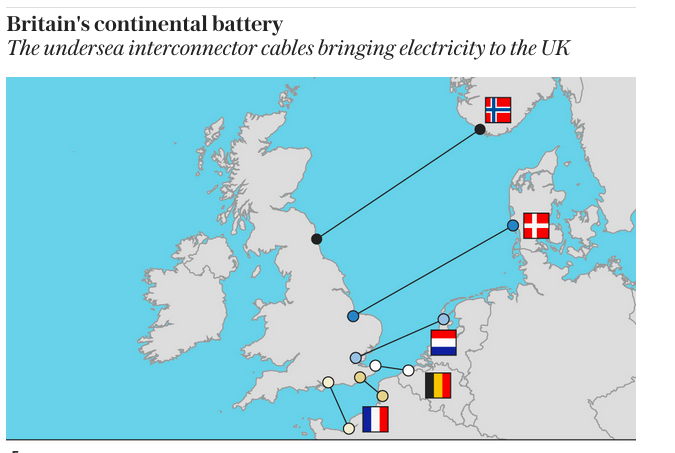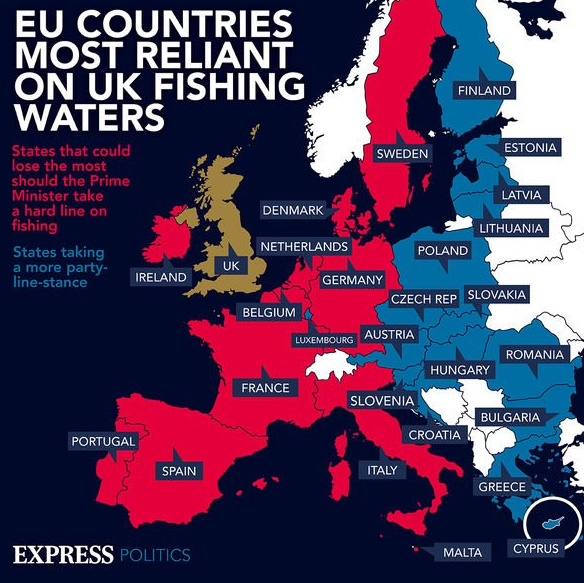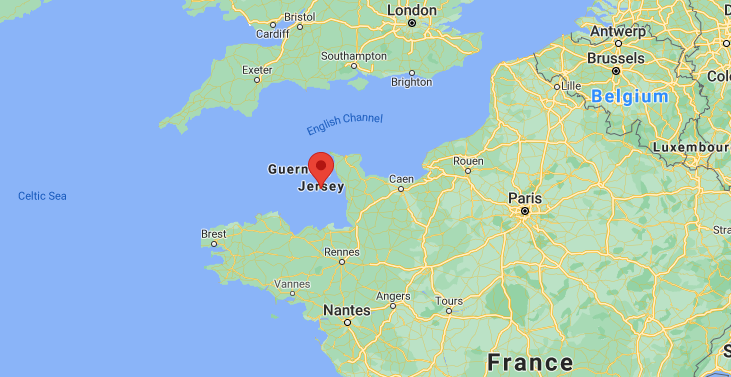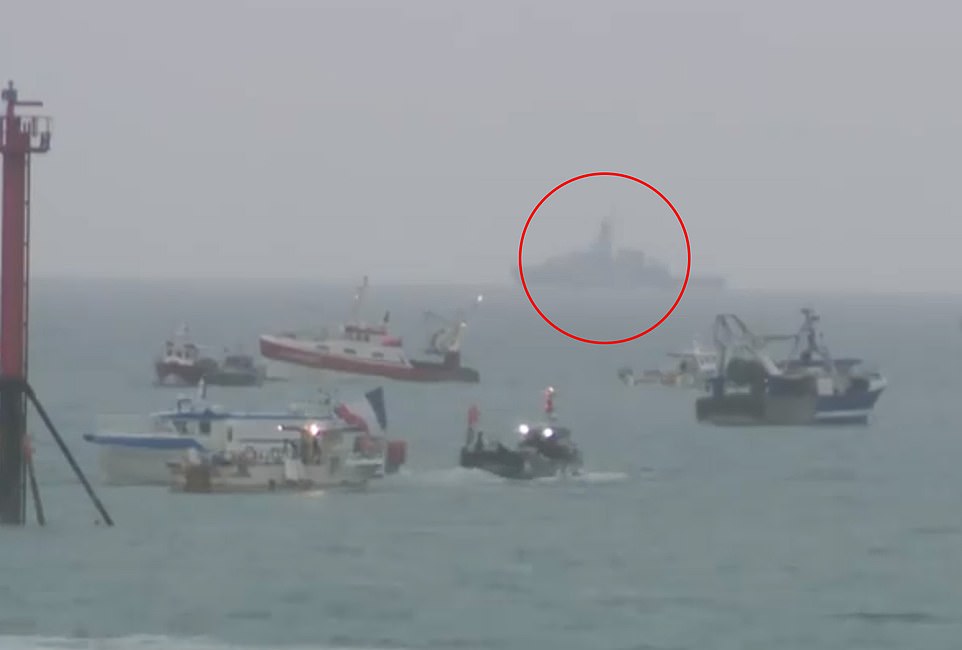Tensions between France and the United Kingdom have erupted on fishing rights and territorial waters around the Channel island Jersey. Around 50 French fisherman boats were dispatched to block the entrance of the island’s main port.
Both sides dispatch naval ships
France also dispatched two naval patrol vessels to Jersey, a French maritime police headquarters spokesperson said on Thursday. The French boats were dispatched as a “precautionary measure” to “ensure security at sea and the safety of human lives”, the spokesperson added.
The British government answered by sending also two military vessels to Jersey “to monitor the situation as a precautionary measure”, as an official Downing Street statement said.
Jersey is one of the Channel Islands, sitting just 14 miles off the French coast. While not technically part of the United Kingdom, the islands are crown dependencies, defended and internationally represented by the UK government.
On Thursday evening, the French fisherboats have returned to their harbors.
Harsh diplomatic from both sides of the channel
The mutual dispatch of military vessels was accompanied by mutual threats from France and Britain. French maritime minister Annick Girardin threatened to cut electricity to the self-governing island of Jersey, saying “Regarding Jersey, I’ll remind you, for example, of electricity transportation via undersea cable,” Girardin said Tuesday. “We have means at our disposal. And even if it’d be sad to get to that point, we’ll get there if we must.”
A senior Whitehall source speaking to the British newspaper The Telegraph described France’s actions as “outrageous” and said the UK would have to take a more cautious view of France as an energy partner.

David Jones, MP for the Tories, commented to the British newspaper Express “It’s what you’d expect from Putin’s Russia, rather than a civilized country such as France.” The newspaper meanwhile started a public poll on whether the UK should close all its waters to all French ships.
Background: Brexit and fishing licenses
The problems have appeared with the EU-UK Free Trade deal following Britain’s BREXIT vote. After the deals closure, Jersey has started to demand documentation from French fishermen on their previous fishing activities around the island. According to the deal Britain has the right to issue permission the European fishermen who want to fish in British waters defined as 6-12 nautical miles.

Under post-Brexit rules, which came into force this month, 41 licenses or permits have been issued to French fishing vessels to operate in Jersey’s waters. Access has been granted based on how much fishing they did there between February 2017 and January 2020. But France says there was no consultation about the adding of new conditions which it says “were not arranged or discussed, and which we were not notified about”, reports the British BBC.
The French Maritime Minister Girardin commented on the issuance of 41 licenses as “real step forward for fishermen’s access to British waters, but the account is still not there.”
Further background: conflict on maritime Exclusive Economic Zones (EEZ)
At the core of the British-French fishery debate lies the conflict on the share of maritime exclusive economic zones. France claims that the British islands in the Channel cannot claim EEZ except for coastal waters. The conflict between the two countries reaches back to the international English Channel court case from 1977.

In that year, the United Kingdom, France and Northern Ireland had appealed the Court of Arbitration in order to delimit the waters around the islands Jersey, Alderney, Guerney and Sark as well as various smaller islands. At those times, Britain and Northern Ireland had signed the 1958 UN Convention on Continental Shelf, while France had accepted it by declaring objection to article 6.
Article 6 of the Convention states the following:
https://legal.un.org/ilc/texts/instruments/english/conventions/8_1_1958_continental_shelf.pdf
“1. Where the same continental shelf is adjacent to the territories of two or more States whose coasts are opposite each other, the boundary of the continental shelf appertaining to such States shall be determined by agreement between them. In the absence of agreement, and unless another boundary line is justified by special circumstances, the boundary is the median line, every point of which is equidistant from the nearest points of the baselines from which the breadth of the territorial sea of each State is measured.”
Britain appealed against France’s objection, but the court decided in favor of Paris, acknowledging that its objection was justified. Therefore, it was decided that article 6 of the convention objected by France could not be applied on the English Channel and that the delimitation had to be made relying on general principles of international maritime law.
The reason for this judgment was, that the principle of median line was producing an unjust result, just as in the case of Greek claims relying on the islands Crete, Rhodos and Kastellorizo. The British island’s coastal line was incomparable to the French coastline, and if taken as a point of measure, the British EEZ would increase extraordinarily and impede France’s access to the Channel.
The principle of just delimitation was introduced to international law with the 1969 Court decision on the North Sea, where the Arbitrary Court rejected an unjust partition, because it would cause future conflicts.
The arbitrary court finally decided finally that the British islands should have a 12 nautical miles EEZ pocket on their side to the open sea of the English Channel, while the general delimitation of the strait was ruled according to the median line.
Interestingly, France contradicts with its position in the English Channel to the stance it takes in the Eastern Mediterranean. Paris argues in the English Channel that island on the opposing side, that is, British islands right in front of the French coast cannot create rights on EEZ. France’s approach in the Eastern Mediterranean is the opposite, where it claims a huge EEZ for small Greek islands right in front of Turkish coastline.
Broader conflict between EU and the UK
Meanwhile, the dispatching of military naval vessels and the mutual harsh tone including threats indicate a broader range of tensions between the European Union and the United Kingdom.
It took a long time to reach the BREXIT trade deal. Debates have erupted recently on production and distribution of the Covid vaccines. Both sides have shown different stances in the Ukraine crisis, where the UK advocated a more military oriented approach, while Brussels lead by Germany demanded diplomacy.
After BREXIT, the United Kingdom has announced to implement the ‘Global Britain’ concept and declared the European Union in its most recent general strategy document, the “Global Britain in a competitive age: The Integrated Review of Security, Defence, Development and Foreign Policy” from March 16th, 2021 to a ‘competitor’. Tensions may calm therefore with issuing more fishing rights around the island of Jersey, but the competition and conflict is likely to prevail.

















Leave a Reply